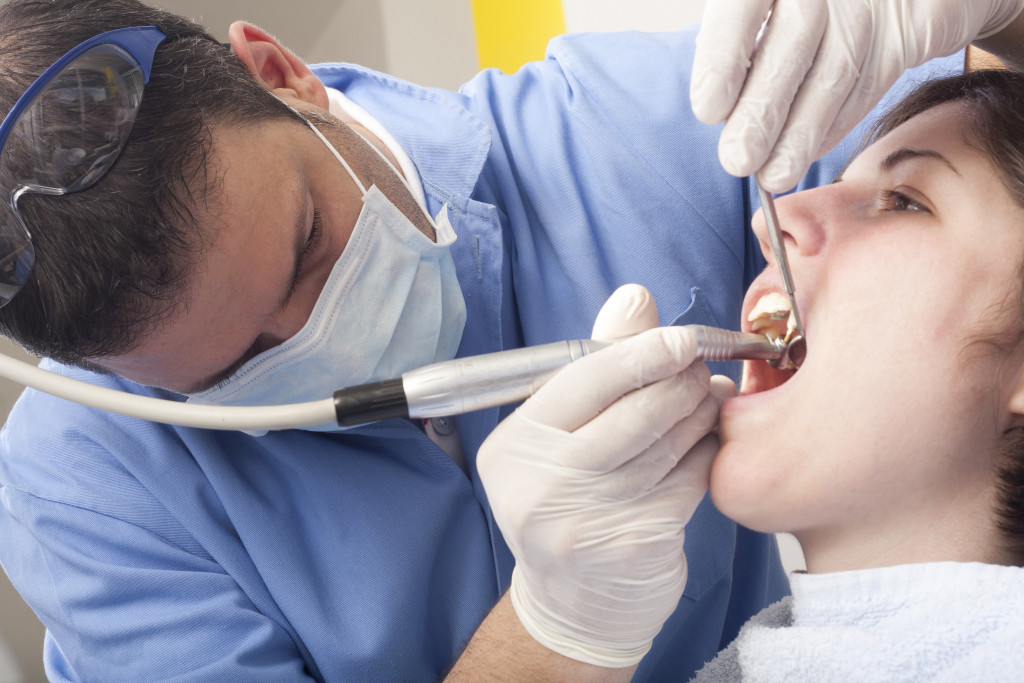- Wisdom teeth are the last to develop in teenagers and can often cause problems.
- Common issues include impacted or misaligned wisdom teeth, which can lead to discomfort and infection.
- Signs that your teen may need their wisdom teeth examined include pain, swelling, and difficulty opening their mouth or chewing.
- Regular dental check-ups are essential for monitoring the progress of wisdom teeth.
- Professional oral surgeons specialize in removing wisdom teeth that pose a risk to dental health.
Dealing with wisdom teeth can be overwhelming. You may have questions about why they’re problematic, when to seek help, and what to watch for. Knowing when to consult an oral surgeon and how to care for your teen after surgery is critical.
This guide aims to simplify the wisdom teeth journey for you and your teen. We’ll review how to recognize early issues and ensure a quick recovery if removal is needed. Get ready to learn all you need to manage your teenager’s wisdom teeth with ease.
Understanding Wisdom Teeth in Teenagers
Wisdom teeth, also known as third molars, are the last set of teeth to develop. While they can be a valuable asset to the mouth when healthy and properly aligned, they often are misaligned and require attention.
The Growth Process of Wisdom Teeth
Your teenager’s wisdom teeth typically emerge between 17 and 25. It’s a natural part of their dental development. However, because these teeth are the last to show up, there’s often not enough room left in your teen’s mouth to accommodate them. This can lead to a range of issues that you’ll want to keep an eye on.
Common Issues Caused by Wisdom Teeth
If there’s not enough space for these teeth to break through the gums, they can become trapped or impacted. This can lead to swelling, pain, and infection. Even when they emerge successfully, they can push other teeth out of the way, causing discomfort and misalignment. It’s these potential problems that make it essential to monitor your teenager’s wisdom teeth closely.
Signs That Your Teenager May Need Their Wisdom Teeth Examined

Knowing when to get your teenager’s wisdom teeth checked is critical to preventing discomfort and other dental issues. So, how do you tell if it’s time to see the dentist? Pay attention to what your teen tells you and what you observe.
Recognizing the Symptoms
Your teen might mention aching at the back of their mouth, which could signify that their wisdom teeth are trying to push through. Keep an eye out for pain symptoms, especially if it’s persistent or if they complain of a headache that seems to originate near the jaws. Swelling around the jaw or red, swollen gums can indicate it’s time for a dental visit. If your teen is having trouble opening their mouth or if they say it’s painful to chew, these are clear cues not to wait any longer.
The Right Time for a Dental Check-Up
Don’t wait for the pain to become unbearable. If your teen shows any of the symptoms mentioned, it’s time to schedule an appointment. Regular dental check-ups are also an excellent way to monitor the progress of their wisdom teeth. Even if your teen isn’t experiencing discomfort, a dentist can spot potential problems early on through X-rays and examinations.
The Role of a Professional Oral Surgeon in Wisdom Teeth Management
Sometimes, despite everyone’s best efforts, wisdom teeth must come out. This is where a professional oral surgeon comes in. They specialize in dealing with complex tooth extractions and can handle your teen’s wisdom teeth removal with precision and care.
When Surgery Is the Answer
If your dentist recommends extraction, they’ll likely refer you to a professional oral surgeon. These experts are trained to remove wisdom teeth that are impacted or pose a risk to your teen’s dental health. The surgeon will evaluate your teen’s teeth and suggest the best action. If surgery is needed, they’ll explain the process, how to prepare, and what to expect during recovery.
Quick Tips for Post-Wisdom Teeth Surgery Recovery

After your teenager has wisdom teeth removed, proper care is crucial for a smooth recovery. They’ll need to manage any pain and swelling with medication and ice packs as directed by their oral surgeon. Soft foods and plenty of fluids are best for the first few days, but avoid straws to prevent complications.
Keeping their mouth clean with gentle saltwater rinses and careful brushing is also essential. Make sure they rest and steer clear of heavy activity to help the healing process. Lastly, don’t skip the follow-up appointments to check their recovery progress.
Final Thoughts
Wisdom teeth management is a significant part of your teenager’s transition into adulthood. By keeping an eye out for symptoms, scheduling regular dental check-ups, and knowing when to consult a professional oral surgeon, you can help your teen avoid discomfort and severe dental issues.
Remember, if surgery becomes necessary, understanding and assisting with post-surgery care is crucial for a swift recovery. With the right approach, you can help your teenager navigate this rite of passage with confidence and ease.

